 Petzlover
Petzlover American Foxhound is originated from United States but Sarplaninac is originated from Macedonia. Both American Foxhound and Sarplaninac are having almost same height. American Foxhound may weigh 13 kg / 28 pounds lesser than Sarplaninac. Both American Foxhound and Sarplaninac has almost same life span. American Foxhound may have more litter size than Sarplaninac. American Foxhound requires Low Maintenance. But Sarplaninac requires Moderate Maintenance
American Foxhound is originated from United States but Sarplaninac is originated from Macedonia. Both American Foxhound and Sarplaninac are having almost same height. American Foxhound may weigh 13 kg / 28 pounds lesser than Sarplaninac. Both American Foxhound and Sarplaninac has almost same life span. American Foxhound may have more litter size than Sarplaninac. American Foxhound requires Low Maintenance. But Sarplaninac requires Moderate Maintenance
 As a cousin of the English Foxhound, the American Foxhound is a scent hound and bred for hunting. Robert Brooke brought the first hunting dogs to the colonies in 1650. These dogs were the starting point for several American hound breeds including the American Foxhound.
As a cousin of the English Foxhound, the American Foxhound is a scent hound and bred for hunting. Robert Brooke brought the first hunting dogs to the colonies in 1650. These dogs were the starting point for several American hound breeds including the American Foxhound.
For almost 300 years the Brooke family owned and bred dogs from this bloodline.
At the same time that Brooke was hunting with and breeding his hounds, George Washington was given French Foxhounds. These were crossed with the Brooke’s dogs to create the American Foxhound. This breed is said to have been originally bred in Virginia and Maryland.
They are the state dog of Virginia. After Red Foxes were imported or migrated, Irish Foxhounds were brought to American and added into the line, increasing the stamina and speed that today’s dog’s still display.
The American Foxhound was recognized by the American Kennel Club in 1886. Today’s American Foxhound presents in many different lines but are all considered the same breed even though some ay look very different. These strains include the Trigg, Walker, Penn-Marydel, Goodman, July and Calhoun.
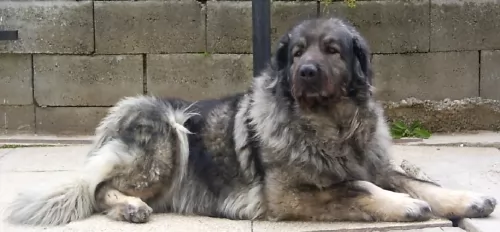 Hailing from Macedonia, the beautiful Sarplaninac dog was developed as a guardian of livestock and is large enough to fight off large predators like bears and wolves.
Hailing from Macedonia, the beautiful Sarplaninac dog was developed as a guardian of livestock and is large enough to fight off large predators like bears and wolves.
Nobody is too sure of the breeds exact origins, though it is thought that its ancestors came to the Balkan Peninsula with people migrating from ancient Asia.
This huge dog is one of the oldest native breeds from ancient Molosser breeds. The dog was recognized in 1939, and in 1954 it became known as the Yugoslav Shepherd Dog. Later the name changed and the dog was recognized by the United Kennel Club in 1995.
 Given the variety of bloodlines and strains mentioned above, there can be many differences in the American Foxhounds. Because of this most American Foxhounds bred to show are Walkers as they most closely fit the AKC Breed Standard.
Given the variety of bloodlines and strains mentioned above, there can be many differences in the American Foxhounds. Because of this most American Foxhounds bred to show are Walkers as they most closely fit the AKC Breed Standard.
In general, the American Foxhound has long, straight legs and is taller than the English Foxhound. They have a narrow chest and domed skull with a long muzzle.
They have low, wide set eyes that should be dark – brown or hazel, never blue. They have feet like a fox and laid-back shoulders with a curved tail. Athletic and muscled, the American Foxhound is bred to run. They are one of the rarest breeds in the United States.
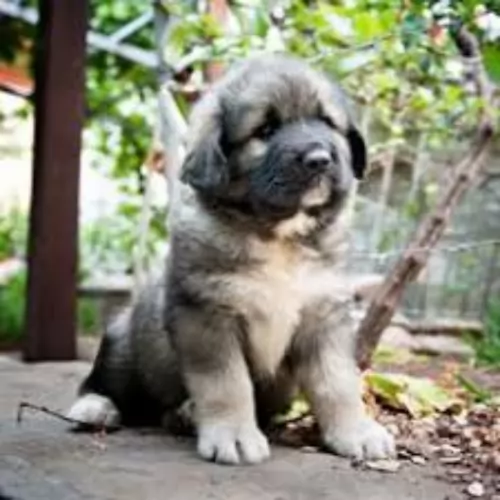 The Sarplaninac is a large, strong, fluffy dog standing at between 54 and 62cm in height and weighing between 30 and 45kg.
The Sarplaninac is a large, strong, fluffy dog standing at between 54 and 62cm in height and weighing between 30 and 45kg.
The coat of the dog is dense, coarse and of medium length. Colors are different shades of grey, white, tan and black. The head is large, the ears are fairly short but are floppy and covered with short hair. The dog is deep chested and the tail is long, often held high and covered with thick, feathery hair.
Protective, reliable, reserved, stubborn and gentle, this intelligent dog is fairly serious, and while he makes a devoted family pet, he is cool and wary of strangers.
Excellent training and socialization makes him well mannered, balanced and obedient around different people. He will tolerate children but won’t take easily to other pets in the house, capable of becoming aggressive with them.
 With a reputation as a docile, sweet dog, the American Foxhound is great with kids and animals. They are gentle and often very shy with strangers. They are strong willed and stubborn especially when training them, so they are not a good first dog. They need an owner who has handled dogs before and knows how to be the pack leader without being angry or mean.
With a reputation as a docile, sweet dog, the American Foxhound is great with kids and animals. They are gentle and often very shy with strangers. They are strong willed and stubborn especially when training them, so they are not a good first dog. They need an owner who has handled dogs before and knows how to be the pack leader without being angry or mean.
The American Foxhound is a scent hound and once he is on the scent it is close to impossible to distract him from it. They have a tendency to ignore commands when they are in this state. A strong owner/leader is needed for this reason. Don’t let him off leash in an unfenced area.
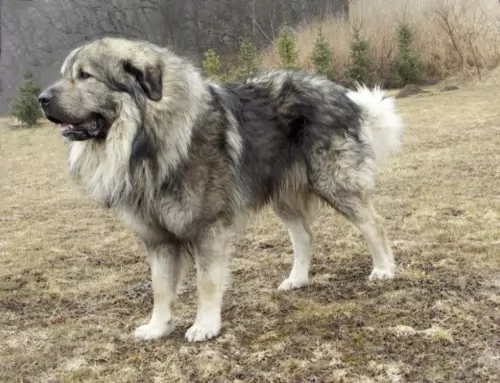 These dogs are protective, but they’re not vicious. When properly raised they are wonderful family pets.
These dogs are protective, but they’re not vicious. When properly raised they are wonderful family pets.
True, it’s a large, strong willed dog that isn’t a good choice for the first-time dog owner. They are good with children, but only children who have been taught how to treat animals with care and patience.
This dog is a powerful guardian type of dog, imposing in size, but it’s all about upbringing, and if you bring him up well then he can make a tremendous pet and companion.
 The American Foxhound, like most hunting dogs does not carry a lot of genetic disorders. But they can easily become overweight and this can cause major problems. Dysplasia of any type had been mostly unknown in this breed, but due to obesity it is cropping up on occasion. Breeders have not, and do not usually screed for any genetic diseases.
The American Foxhound, like most hunting dogs does not carry a lot of genetic disorders. But they can easily become overweight and this can cause major problems. Dysplasia of any type had been mostly unknown in this breed, but due to obesity it is cropping up on occasion. Breeders have not, and do not usually screed for any genetic diseases.
The most devastating health issue the American Foxhound faces is thrombocytopathy. We will go into more detail on this in the Care for Pet section. This is a disease of the blood system, namely the platelets.
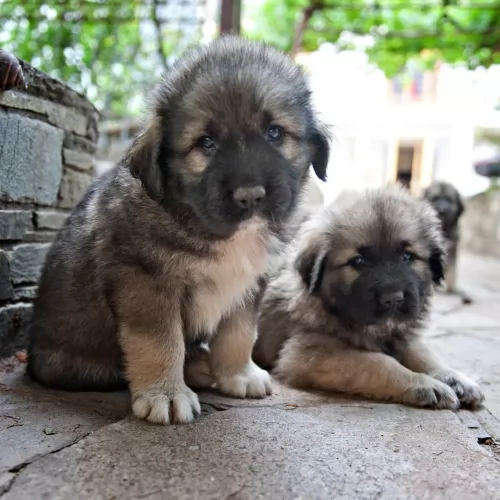 The Sarplaninac dog is a robust dog but he can suffer from health issues such as hip dysplasia, obesity, bloat, ear infections and skin allergies.
The Sarplaninac dog is a robust dog but he can suffer from health issues such as hip dysplasia, obesity, bloat, ear infections and skin allergies.
When your dog gazes up at you with such love in his eyes, don’t be tempted to pop some chocolate into his mouth or let him finish off your ice-cream. Treats like this can damage your pet’s health and give him heat intolerance, breathing difficulties, hypertension, liver disease and diabetes.
 Whether feeding a pup, or an adult American Foxhound, you need to be sure the food is high quality and that you don’t overfeed. The Foxhound is happy to eat as much as you give him. They like to eat. Make sure you measure and don’t free feed. Control what they are eating.
Whether feeding a pup, or an adult American Foxhound, you need to be sure the food is high quality and that you don’t overfeed. The Foxhound is happy to eat as much as you give him. They like to eat. Make sure you measure and don’t free feed. Control what they are eating.
For a puppy feed twice, a day – 2 to 3 cups of high quality puppy food. When he becomes an adult feed him once a day with 2 cups of adult food.
As mentioned previously, the American English Foxhound, like most of the hound breeds is a very healthy dog. They do not have many genetic health issues. They do have a risk for thrombocytopathy. This risk is slight, but all owners of American English Foxhounds should be aware of it.
This disease is a circulatory system disease with poorly or non-functioning platelets. Platelets are designed to assist in the control of bleeding and without functioning ones the dog can bleed excessively from just a minor cut or bleed internally from a minor injury. The disease can be treated but you have to notice it first. Depending on how severe the disease is, the treatment will vary. Some dogs will have to be given platelets.
This is a high energy breed that is very active and needs a lot of exercise. They are not good for the first-time owner as they are stubborn and hard to train. They need room to run and get frustrated and out of sorts if they don’t have it. They can live in the suburbs but only with a large fenced yard, an even larger dog park and regular walks. This dog needs a lot of exercise. The simplest thing to do is take him hunting.
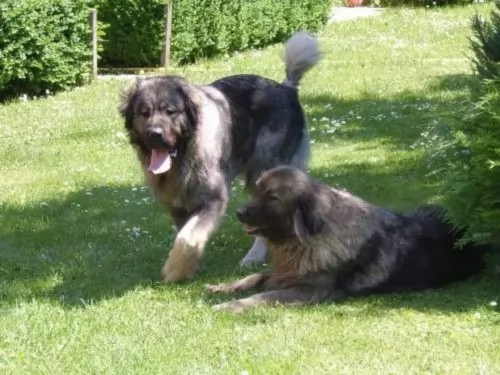 Every dog needs care from puppyhood through to old age.
Every dog needs care from puppyhood through to old age.
Šarplaninacs are looked upon as medium maintenance dogs. The coat is long and thick and requires a firm bristle brush to get their hair brushed.These dogs are moderate shedders so a brush twice a week will do the trick to keep the hair free of loose hair and matting.
Because these dogs have floppy ears, they will need to be checked and cleaned. Floppy eared dogs battle with moisture and wax build-up that increases the likelihood of ear infections.
Check the eyes that they are clear and free of discharge. Eyes with a lot of discharge can be indicative of health problems.
Check for any unusual lumps as cancer often starts with a new lump.
Provide your pet with a nice warm, dry place to sleep.
Keep his vaccines up to date to prevent deadly canine diseases.
Have him or her spayed or neutered if you don’t want puppies. These are regular procedures for a vet and offers health benefits for the dog. Neutering a male improves his character and keeps him from roaming. These dogs are capable of having 3 – 8 puppies.
The Sarplaninac requires decent food if he is to remain healthy. Dog’s stomachs can become upset if they eat all kinds of sweet and spicy human foods.
Commercially manufactured dog food is a good backup food to have because of its convenience. Try to include some home-made food. Simply add into one big pot chicken, brown rice or pasta and spinach, sweet potatoes and carrots. This food can all be chopped up and added in to the dry kibble twice a week. Give this to your pet twice a week and see how his tails wags when he smells it.
Also try to add in some raw meat to his food occasionally.
Ensure there is always a bowl of fresh, cool water within his reach.